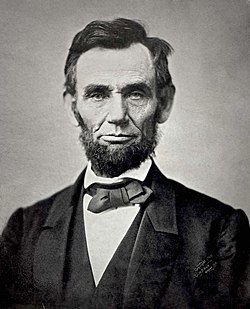This article relies largely or entirely on a single source .(August 2024) |
November 8, 1864 | ||||||||||||||||||||
| ||||||||||||||||||||
| ||||||||||||||||||||
| Elections in Louisiana |
|---|
 |
The 1864 United States presidential election in Louisiana took place on November 8, 1864, as part of the 1864 United States presidential election.
Contents
Louisiana voted for incumbent Republican President Abraham Lincoln. The state (along with Tennessee) chose electors for the election after being captured early in the American Civil War. However, due to war issues, its votes were rejected.

